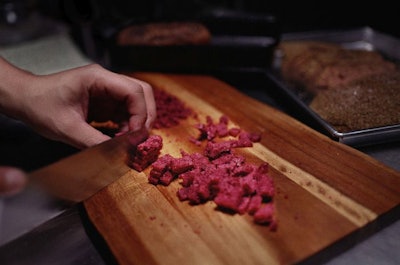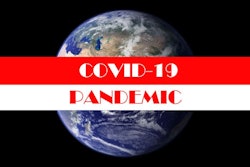
Some in the poultry industry may see alternative proteins as as a threat, but the industry may be sitting on its very own source of alternative protein without even realizing it.
Take a look at the work of a young student from Thailand, who studied in London, and who has developed a method of turning the industry’s feather waste – or better termed feather resources – into an alternative protein for human consumption.
Sorawut Kittibanthorn’s first keratin extraction food has been named “Cloud Nugget,” and he describes eating it as being like “eating a cloud or the lightest nugget ever,” which sound pretty good to me!
Chemically, chicken feathers are composed of approximately 91%, protein (keratin), which contains up to 8 types of essential amino acids required as part of a healthy diet.
Kittibanthorn, who graduated from Central Saint Martin’s University of the Arts London (CSM) earlier this year, looked at converting feathers as the focus of his “A Lighter Delicacy” graduation project.
Working with food scientists from the U.K.’s University of Reading and CSM’s biology laboratory, Kittibanthorn has developed a theoretical a protein extraction protocol that is ready for commercialization but, like so much else over the last year, COVID-19 disrupted his progress.
Nevertheless, he has developed and experimented with his first food prototype, Cloud Nugget, which is completely safe for human consumption, light in calories and has a melt in the mouth texture.
He is currently partnering with food scientists in Thailand, Associate Professor Hathairat Rimkeeree, and looking for chefs or restaurants that may want to work with this novel food, but would it be accepted by the public?
Sustainable luxury?
Consumers may be reluctant to consume something derived from a product that, to date, has been considered waste. Additionally, feather protein is neither vegan nor vegetarian.
However, much may depend on positioning and Kittibanthorn points to the introduction of edible insects in the West, where they are marketed as high-end, or luxury foods.
Like any new project there is a need for funding to help to scale up the idea and turn it into a commercial business and Kittibanthorn is keen to partner with a major poultry company.
So perhaps alternative proteins are not such a threat to the poultry industry after all but, rather, potentially a whole new revenue stream and, perhaps, a way for the industry to raise its sustainability credentials further still.
As Kittibanthorn says, if we are to rear and slaughter millions of birds daily, then, at the very least we have a responsibility to ensure that we safely and sustainably make use of every part of them.


















